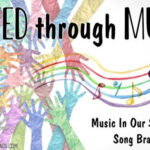Every morning, an automated email delivers a random Wikipedia article to my inbox. Most of the time, it’s something incredibly niche, a tiny fragment of our vast world. Think “1983 Paraguayan field hockey season” or “a remote village in northwest China.” Usually, these are just mildly interesting, but sometimes, these seemingly insignificant articles become portals to unexpectedly fascinating discoveries. This past Saturday, one such article led me down a rabbit hole, spiraling back almost five decades, all thanks to a song.
The song itself, “When Will I See You Again,” isn’t complex in its construction. It’s one of those pieces where the magic lies in the arrangement and performance, more so than in groundbreaking songwriting. Swirling strings, soulful horns, and layered vocals create an atmosphere around deceptively simple lyrics that repeatedly pose the same yearning questions:
When will I see you again?
When will we share precious moments?
Will I have to wait forever?
Or will I have to suffer and cry the whole night through?When will I see you again?
When will our hearts beat together?
Are we in love or just friends?
Is this my beginning or is this the end?
When will I see you again?
And so the song continues, a cycle of longing and uncertainty. Reading these lyrics on paper, it’s hard to immediately grasp their potential, the inherent musicality that transformed them into a chart-topping hit. Yet, sung by The Three Degrees, “When Will I See You Again” resonated deeply with audiences worldwide.
Initially, interpreting these lyrics as direct questions posed to a loved one might paint a picture of neediness, even obsession. The narrator seems to be grappling with possessiveness, demanding reassurance and commitment from the object of their affection. However, shift the perspective, and a richer, more universal emotion emerges.
What if “When Will I See You Again” is not an outward plea, but an internal monologue?
Suddenly, the narrator becomes relatable, sympathetic. They are not necessarily clingy, but heartbroken. They are singing not to someone, but about someone deeply missed. This interpretation opens up the song’s emotional core to a vast audience, connecting with anyone who has experienced loss and longing.
This interpretation isn’t just a personal musing. In Bono, a 2006 book of interviews with the U2 frontman by Michka Assayas, Bono shares a powerful anecdote that highlights this very point. Reflecting on the 2004 Madrid train bombings, a tragedy that claimed nearly 200 lives, Bono was asked what song he would have sung if he were onstage that day.
What song would you have sung had you been onstage that day?
“When Will I See You Again?”—the Three Degrees.
How does it go?
[sings] When will I see you again? De-de-de-de-de…/When will we share precious moments? It’s a song about loss. That song can bring you to tears. It’s a very strange course of events. We played in Nuremberg on the PopMart Tour in August 1997. They had marked out an area. There’s a stadium, the Zeppelinfeld, which is associated with the Third Reich. It’s an Albert Speer building. There was some controversy about us playing there. And I remember thinking: No, we should never be afraid of a building. And if people are so scared of it, paint it pink or something like that. Howie B, my great friend, was deejaying there. He said to me: “I’m not sure I want to do this.” I said: “Well, you don’t have to if you don’t want.” But he went on and started his set by playing the Three Degrees’ “When Will I See You Again?” It was just the most remarkable thing to see this joyous jazzman with tears down his face, decades later, mourning people of his own ethnic group that he’d never met, but feeling it. I really felt this song just chase the devil away. [sighs] Because you should never think about these things on a grand scale: these are families, and sisters and brothers and uncles.
[source]
This powerful story underscores the song’s ability to transcend its simple origins. While Gamble and Huff, the songwriters and producers behind “When Will I See You Again,” were undoubtedly commercially driven, aiming to create hits, they inadvertently crafted something profoundly resonant. The song became a precursor to the disco era, yet it possessed an emotional depth that outlasted fleeting trends.
For me personally, the resurgence of “When Will I See You Again” wasn’t tied to any dramatic life event. I have no specific memory of its initial release in September 1974, no poignant association with a past love, no vinyl record worn thin from repeated plays. Unlike many songs from my youth, it never made it onto my playlists. Decades passed without a thought of it.
And yet, this weekend, after stumbling upon it randomly, the song has taken root in my mind, playing on repeat in my thoughts.
Why this song, and why now? The answer is elusive, more speculation than certainty. Perhaps it’s connected to the nostalgic haze of Fall 1974, a period that, in retrospect, feels like the fading edge of youthful innocence. Family life was stable, loss was distant, and the weight of future mistakes was yet to be felt.
Whatever the reason, “When Will I See You Again” has saturated my consciousness, a persistent echo from the past. Perhaps writing about it is a way to release its hold, to set both the song and myself free once more.
A Royal Aside: The Three Degrees held a unique distinction as the favorite musical group of Prince Charles of Britain. They graced Buckingham Palace with their performances and were among the select few American guests invited to his wedding to Diana Spencer. The media playfully dubbed them “Charlie’s Angels,” a moniker that may have blurred the line between press invention and genuine royal affection.
[

